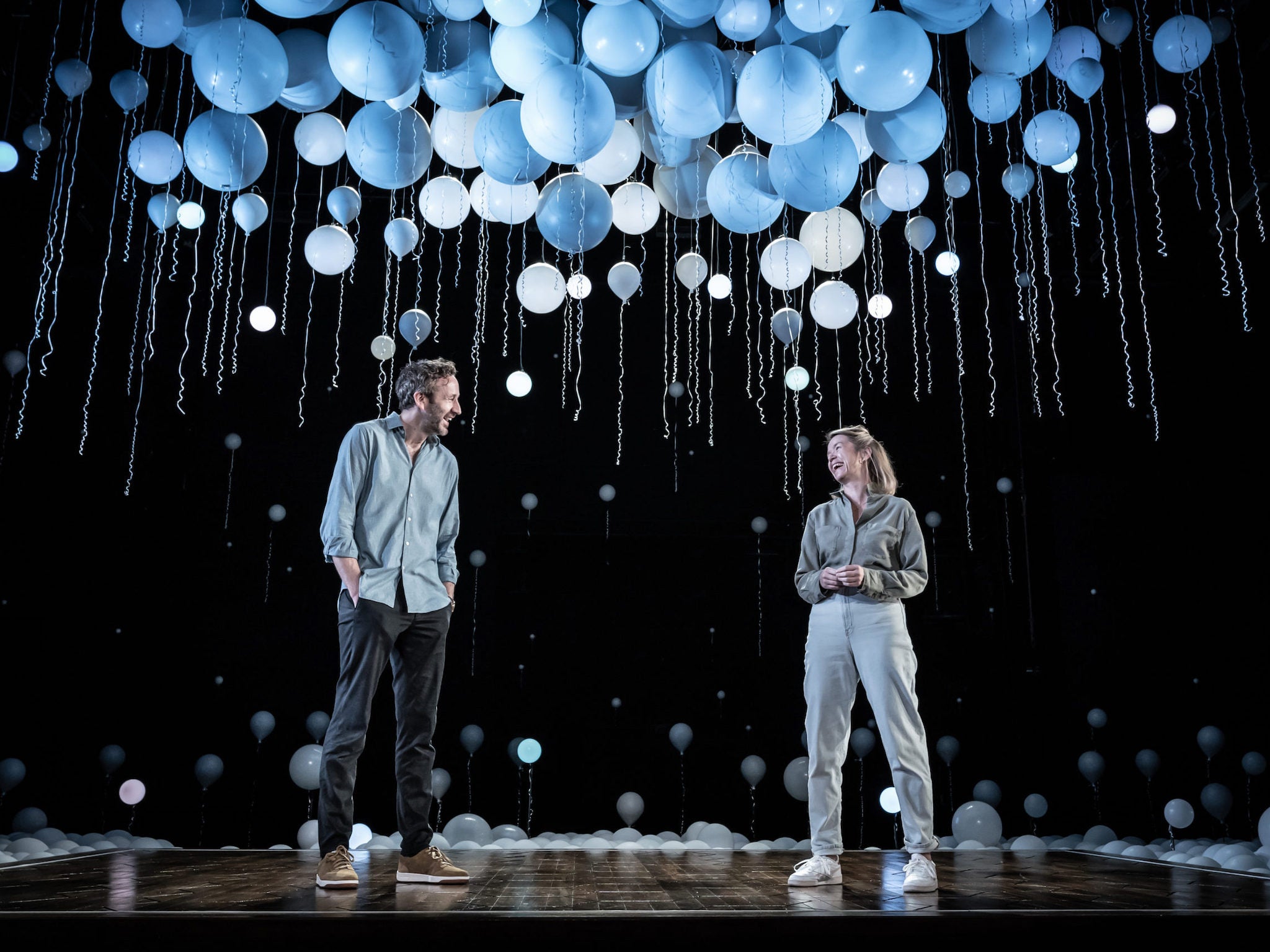Constellations review, Vaudeville Theatre: Multiple realities collide in this spry and sparkling production
Four different pairs of actors take on Nick Payne’s accomplished 2012 play – which is both a neat dramaturgical device and a savvy business decision

As Marianne, the quantum physicist at the heart of Constellations, puts it to Roland, her beekeeper partner: “In the quantum multiverse, every choice, every decision you’ve ever and never made exists in an unimaginably vast ensemble of parallel universes.”
Nick Payne’s dizzyingly accomplished 2012 play is, in part, an exploration of how the concept of multiple realities might affect a single romantic relationship. As a result, the Donmar Warehouse’s decision to have four different iterations of the same couple (Peter Capaldi and Zoe Wanamaker and Sheila Atim and Ivanno Jeremiah earlier in the summer, and currently, Russell Tovey and Omari Douglas and Chris O’Dowd and Anna Maxwell Martin) is both a neat dramaturgical device and a savvy business decision: infinite universes means a multitude of starry casting opportunities, and why book for one couple when you could book for two, or even four? (It is curious, however, that even in the realm of boundless possibilities, the concept of a lesbian couple remains out of bounds.)
Constellations’s ever-shifting form and its mix of science, faith, and love remains as spry and sparkling as it was nine years ago. An infinite set of universes means that scenes are repeated, sometimes with only infinitesimal changes, and often with varying outcomes, but there is always a sense of some unknown determinism nudging Roland and Marianne towards a seemingly inevitable ending – or beginning, depending on how you understand time.
Tovey and Douglas’s version is strongest in the play’s romcom elements: their earlier flirtation scenes are effervescent, playful, and genuinely sexy – but as the play progresses, Tovey’s performance becomes unmodulated, with him playing for laughs a little too broadly. Douglas, by contrast, remains dialled into his performance, somehow both impish and dignified, even in the face of his own mortality. They are the far more vibrant of the two pairings, with Chris O’Dowd and Anna Maxwell Martin always staying at surface level, feeling far less dynamic and textured. O’Dowd shuffles about affably enough, although the interpretation is ultimately unadventurous, while Maxwell Martin’s ebullience can occasionally overshoot itself. Lee Curran’s glitchy lighting is often the third character in the mix, punctuating those earlier comic scenes with a wicked sense of timing, before mutating into something more sinister.
There is only so much these couples can offer in terms of genuine variety, given that Longhurst’s production and Tom Scutt’s dazzling planetary design have remained largely unmodified since 2012. Seeing all four couples in the span of a month is a case of diminishing returns: what we get from each couple are slight, delicate refractions, rather than wholly new interpretations, and although the production has undeniable fizz, it can sometimes feel like it’s coasting on the easiest setting.
I can’t shake the feeling that so much more could have been plumbed from Constellations: more adventure, more risk, and specifically, more complex character studies – there is an intriguing, loaded moment of violence in the middle of the play that none of the iterations have come close to unpicking well enough. Ah well. Perhaps in another universe.



Join our commenting forum
Join thought-provoking conversations, follow other Independent readers and see their replies
Comments